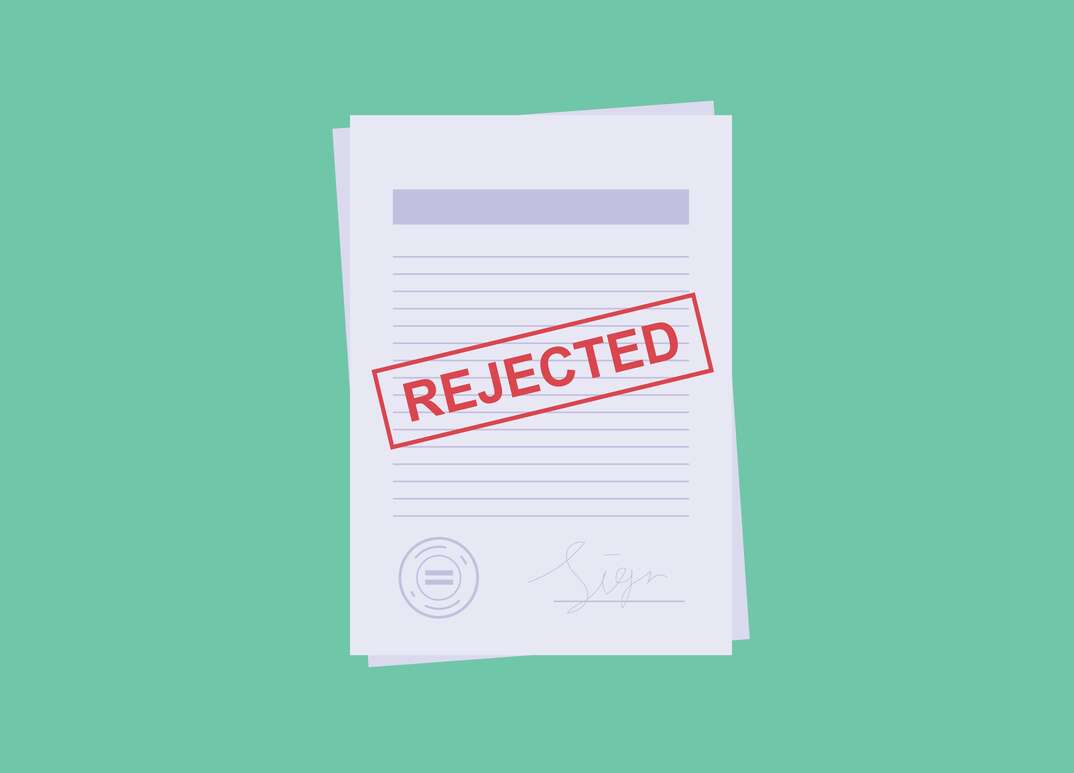- AppliancesElectriciansHVACLandscapingLocksmithPest ControlPlumbingRenovationRoofingT V RepairAll Home Improvement
- Car AccidentClass ActionCorporate LawCriminal DefenseDivorce LawEmployment LawFamily LawFinancial LawLegal AidMedical Injury LawyersMedical MalpracticeReal Estate LawWater Fire RestorationAll Legal
- InvestmentRetirementAll Finance
- Animal InsuranceAutoGeneral InsuranceHealth PolicyHome RentersAll Insurance
- DentalHealth SpecialistsAll Medical
- Animal CareVeterinaryAll Pets
- Auto GlassTowingAll Automotive
Why Was My Student Visa Application Denied?

Studying abroad is an exciting opportunity to spend time in another country and pursue educational opportunities. But when your student visa isn’t accepted it can cause havoc on your well-planned time abroad.
The United States offers two student visas: the F-1 visa and the M-1 visa. The F-1 visa is the more popular of the two because it's for students in traditional academic programs. The M-1 visa is for students pursuing a vocational education. While thousands of students apply for these visas every year, not all are accepted.
Student visa applications are generally denied because the applicant did not meet the eligibility criteria or made a mistake with the paperwork. Common reasons for denial include:
- Not already being accepted into a SEVP-approved program. Applicants must already be accepted into a program approved by the Student and Exchange Visitor Program before submitting a student visa application. These programs can include colleges, as well as secondary schools, language programs and some conservatories.
- Already being inside the United States. The F-1 student visa requires that applicants be outside the United States when they apply.
- Not being enrolled as a full-time student. Part-time students or students who haven't yet completed the enrollment process aren't eligible for an F-1 visa.
- Not having strong enough ties to your home country. An F-1 visa is a temporary nonimmigrant visa, and applicants must show an intent to return to their country of origin when they've completed their programs.
- Not having proof of funds. An F-1 visa only allows you to work on campus for a maximum of 20 hours per week. You must be able to show you have sufficient funds outside of this to support you while you're studying in the United States.
- Not showing proficient English mastery. Student visa applicants must show proficiency in English to be able to study and live in the United States. In some cases, being enrolled in English courses can satisfy this requirement.
- Not being admissible. Those applying for a student visa must be generally admissible to the United States, which includes not having a disqualifying criminal history or medical issue.
- Errors on the application. Failing to submit all the required paperwork or missing a section on the application will result in a denial.
If My Student Visa Is Denied, Can I Reapply?
Applicants who've received a denial notice for their student visas can reapply. However, it's important to consider the reason for denial and address this in your next application. For example, if you were denied because you aren't enrolled as a full-time student, you could finish the enrollment process and then reapply for the student visa. While there's no limit on the number of times you can apply for a student visa, the application fee is $185 (CAD 250), so it can be expensive to keep applying without fixing the underlying issue.
Student visas aren't subject to an appeal process. If your application for a student visa is denied, your only option is to reapply or pursue a different academic program in another country.
More Related Articles:
- When Do You Need a Lawyer? Determine If You Need to Hire an Attorney
- How Much Are Court Costs?
- What Is a Misdemeanor?
- What Is Legal Precedent?
- How Do You Fire Your Attorney?
What Are My Next Steps If My Student Visa Is Denied?
The first thing to do after finding out that your student visa is denied is to look carefully at the notice. It will include the reason for denial, and you can see if it's something simple you can fix before you apply again. If it's not something that can be fixed quickly, you'll need to notify your contact at the academic program to let them know you're having issues getting your student visa approved. They may be able to offer resources or defer your program, so you have time to reapply without losing your spot.
In some cases, you may need to consult with an attorney. Even though the student visa is a nonimmigrant visa, you'll still need to talk with an immigration attorney to find out what your options are. If you plan on reapplying, an attorney can provide advice on what you can do to your application packet to increase your chances of being approved the next time.
If your visa was denied for reasons that aren't able to be easily fixed, such as being inadmissible due to a criminal record, you may need to look at other programs within your home country or in a country you're eligible to study in.
Elocal Editorial Content is for educational and entertainment purposes only. The information provided on this site is not legal advice, and no attorney-client or confidential relationship is formed by use of the Editorial Content. We are not a law firm or a substitute for an attorney or law firm. We cannot provide advice, explanation, opinion, or recommendation about possible legal rights, remedies, defenses, options or strategies. The opinions, beliefs and viewpoints expressed by the eLocal Editorial Team and other third-party content providers do not necessarily reflect the opinions, beliefs and viewpoints of eLocal or its affiliate companies. Use of the Blog is subject to the
Website Terms and Conditions.The eLocal Editorial Team operates independently of eLocal USA's marketing and sales decisions.



